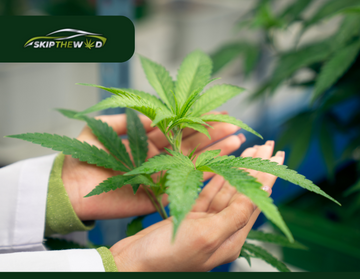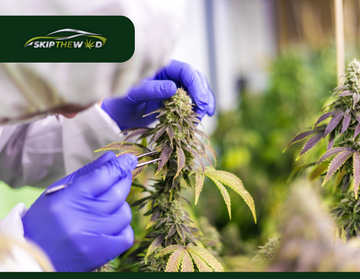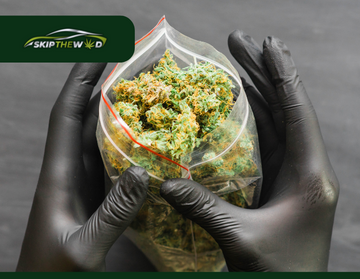Mental health conditions like anxiety and depression are widespread, affecting millions globally. Conventional treatments typically involve therapy and medications like antidepressants or anti-anxiety drugs, which, while effective for many, come with side effects and don’t always work for everyone. Recently, the conversation about using cannabis to treat mental health conditions, particularly anxiety and depression, has gained momentum. Research on how cannabis impacts mental health is ongoing. Still, anecdotal evidence and some studies suggest that cannabis, particularly cannabinoids like cannabidiol (CBD), may help alleviate symptoms of anxiety and depression. This article explores the potential of cannabis in treating these conditions, its benefits, risks, and strains that may be particularly helpful.
Understanding Anxiety and Depression
Anxiety and depression are two of the most common mental health disorders.
- Anxiety involves persistent worry, fear, and nervousness. Individuals with anxiety may experience physical symptoms like rapid heartbeat, sweating, and difficulty concentrating.
- Depression, on the other hand, involves prolonged periods of sadness, low energy, and a lack of interest in activities once enjoyed. It can also lead to physical symptoms such as fatigue, insomnia, and changes in appetite.
Both conditions can significantly impact daily life and well-being, and many people seek alternative treatments to manage these symptoms more naturally. This is where cannabis may come into play.
How Cannabis May Help Treat Anxiety and Depression
Cannabis contains over 100 cannabinoids, including the well-known compounds THC (tetrahydrocannabinol) and CBD (cannabidiol). These compounds interact with the body’s endocannabinoid system, which plays a crucial role in regulating mood, stress, and emotional responses.
-
CBD for Anxiety and Depression
CBD is the non-psychoactive compound in cannabis that has gained significant attention for its potential to help treat anxiety and depression. Studies suggest that CBD may reduce anxiety by interacting with serotonin receptors in the brain, a neurotransmitter that regulates mood and social behavior. Similarly, CBD’s calming effects may alleviate depressive symptoms without the "high" associated with THC, making it a preferred choice for those looking to avoid psychoactive effects.
-
THC and Its Impact on Mental Health
While THC is known for its psychoactive effects, which can sometimes increase anxiety in high doses, it may have therapeutic potential when used carefully. Low doses of THC may help reduce symptoms of depression by increasing dopamine levels in the brain, promoting a sense of well-being and pleasure. However, finding the right balance is key, as high doses can exacerbate anxiety and mood disturbances.
-
Cannabis and the Endocannabinoid System
The endocannabinoid system (ECS) plays a vital role in regulating mood, anxiety, and emotional responses. By interacting with the ECS, both THC and CBD can influence neurotransmitter systems, potentially stabilizing mood and reducing stress levels.
-
Stress and Relaxation
One of the most commonly reported benefits of cannabis is its ability to promote relaxation and reduce stress. For individuals dealing with anxiety, using the right strain can help manage daily stressors and promote a sense of calm, leading to fewer anxious thoughts and feelings.
Research on Cannabis and Mental Health
While much of the evidence around cannabis and mental health is still emerging, several studies have provided insight into its potential benefits:
- Anxiety Relief: A 2019 study published in The Permanente Journal found that CBD significantly reduced anxiety in a majority of participants. Many reported better sleep quality as well, which is often disturbed in individuals with anxiety.
- Depression and Mood Improvement: A study in 2020 published in Journal of Affective Disorders found that cannabis use led to a significant decrease in depressive symptoms for many participants. However, the study noted the importance of dosing and strain selection, as higher THC levels could negatively impact some users.
- Post-Traumatic Stress Disorder (PTSD): Cannabis has also shown promise in helping individuals with PTSD, a condition linked to anxiety and depression. Cannabinoids may help reduce the intensity of traumatic memories and improve overall mental health.
Potential Risks and Considerations
While cannabis holds promise for treating anxiety and depression, it is not without risks, particularly when not used correctly. Here are some factors to consider:
-
THC and Anxiety
While low doses of THC may help alleviate depressive symptoms, high doses can increase anxiety in some individuals. It is essential for those new to cannabis or sensitive to THC to start with low doses and gradually increase if needed.
-
Cannabis Dependence
Some individuals may develop a dependence on cannabis, especially when used frequently or in high doses. This can lead to withdrawal symptoms when stopping, including mood swings, irritability, and anxiety. Using cannabis responsibly and in moderation is essential.
-
Strain Selection
The strain of cannabis used can significantly impact how it affects mental health. Some strains are better suited for anxiety relief, while others may be more effective for treating depression. Consulting with a healthcare provider or cannabis specialist can help individuals find the right strain and dosage.
Best Cannabis Strains for Anxiety and Depression
When considering cannabis for anxiety or depression, strain selection is key. Different strains can have varying effects on mood, anxiety levels, and energy. Here are some strains from Skip the Weed that may help:
-
Granddaddy Purple
Known for its relaxing and calming effects, Granddaddy Purple strain is an indica-dominant strain that may be beneficial for those dealing with anxiety or stress. Its sedative effects can help individuals unwind after a long day, reduce anxiety, and promote restful sleep.
-
Sour Diesel
This sativa-dominant strain is famous for its uplifting and energizing effects, making it a popular choice for individuals struggling with depression. Sour Diesel strain may help boost mood, increase energy, and enhance creativity without overwhelming the user.
-
Zookies Kush
This hybrid strain offers a balanced experience, providing a sense of relaxation without heavy sedation. Zookies Kush strain may help relieve stress and anxiety while allowing users to remain functional and focused throughout the day.
Practical Considerations for Users
If you are considering using cannabis to help manage anxiety or depression, here are some practical tips:
-
Start with CBD:
For those new to cannabis or sensitive to THC, starting with CBD-dominant strains or products is a good option. CBD can help manage anxiety and improve mood without causing the psychoactive effects associated with THC.
-
Gradual Dosing:
Always start with a low dose of THC, especially if you are using it to treat anxiety. Gradually increasing the dosage can help avoid exacerbating anxiety or triggering paranoia.
-
Track Your Symptoms:
Keep a journal to track how cannabis affects your symptoms, mood, and overall well-being. This can help you determine which strains and dosages work best for you.
Conclusion
Cannabis holds promise as a complementary treatment for individuals dealing with anxiety and depression. With its potential to promote relaxation, relieve stress, and improve mood, many are turning to cannabis as an alternative to traditional medications. However, it is crucial to approach cannabis therapy responsibly, consulting with a healthcare provider and starting with the right strains and dosages. For those in Winnipeg, Skip the Weed offers a variety of strains that can help individuals manage their mental health and improve their quality of life.









